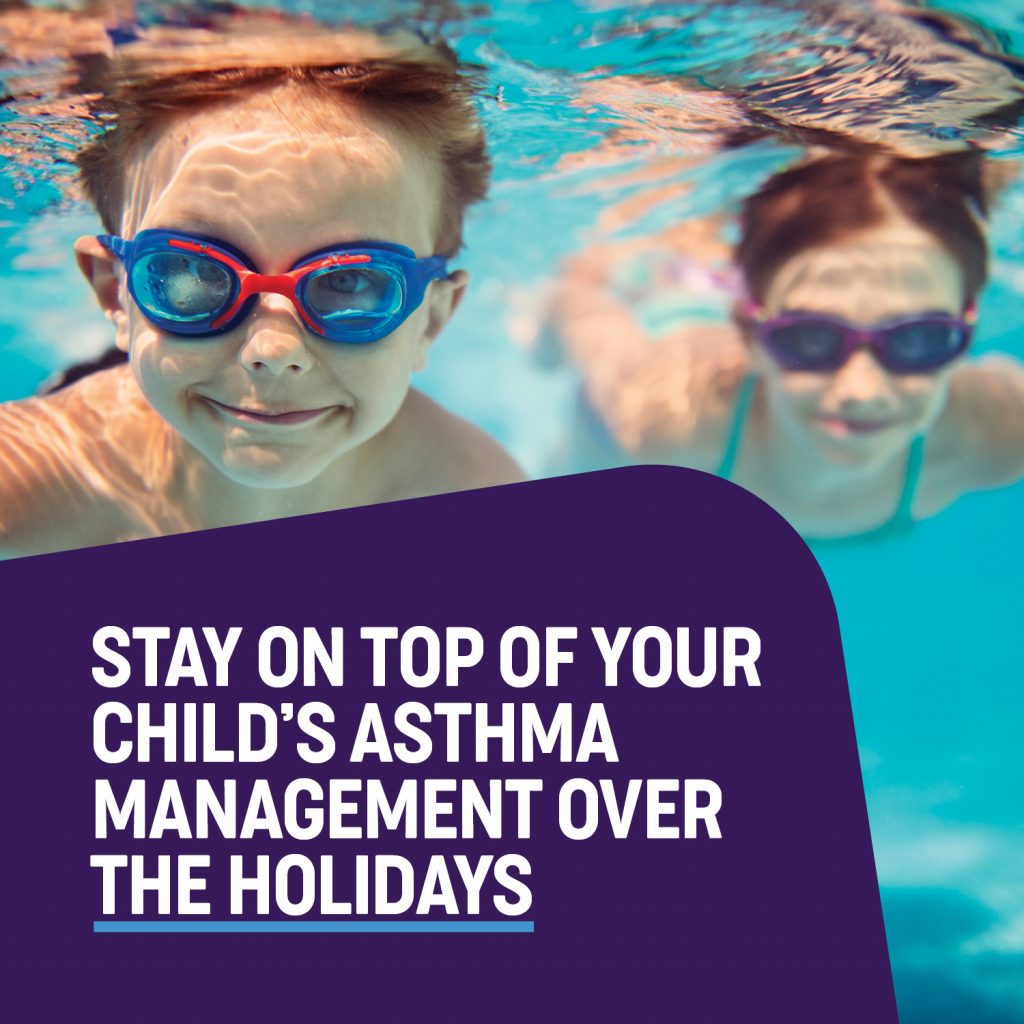STAY ON TOP OF YOUR CHILD’S ASTHMA MANAGEMENT OVER THE HOLIDAYS.
It can be easy to get out of routine on the school holidays and research tells us there is a sharp rise in the number of asthma attacks for children when they return to school after the break. So, to ensure you feel supported and your child is prepared for when school goes back next year, there are a few ways you can stay on top of your child’s asthma management over the holidays;

- Check your child’s medications – are they still in date? Do they require replacing?
- Keep vigilant with your child’s preventer medication and ensure you give or they take preventer as prescribed, even when feeling well – this is the mainstay of asthma management.
- Ensure you pack your child’s asthma medication(s), spacer, and mask (if needed) on all holiday outings , and if you go away. You don’t want to be caught without it!
- Ensure anyone who is caring for your child over the holidays has access to a copy of your child’s written Asthma Action Plan; medications; spacer and mask (if needed) and knows how to use them and who to contact in an emergency.
- See your doctor ideally before Christmas, for an Asthma Review to discuss recent asthma symptoms and control, medication use, triggers over spring and summer, and consider any allergies or environmental triggers that affect your child. Ask for an update to your child’s written Asthma Action Plan for everyday use and have you and your child undertake a face to face inhaler technique check with the doctor to ensure your child is getting the correct dose of medicine into their lungs.
- Recognise early signs of worsening asthma
- Understand your child’s triggers and take steps to avoid or manage them as discussed with their doctor and outlined on your child’s written Asthma Action Plan.
- Continue to monitor and manage allergies such as hay fever that can make asthma worse, discuss your child’s allergies with your doctor if you are concerned.
- Follow COVID-19 social distancing and hygiene advice.
- Stay up to date on weather conditions and be aware of high pollen or poor air quality days particularly over the summer bush fire season
For more information on asthma in children visit https://asthma.org.au/about-asthma/asthma-in-children/
Additionally, if you have more questions you can speak with one of our Asthma Educators via 1800 ASTHMA (1800 278 462) or email AsthmaSupport@asthma.org.au. They are available Monday to Friday 9am to 5pm.
Partners
echamber and Flo are campaign partners of Asthma Australia and have not been involved in the development of this web page/content.








